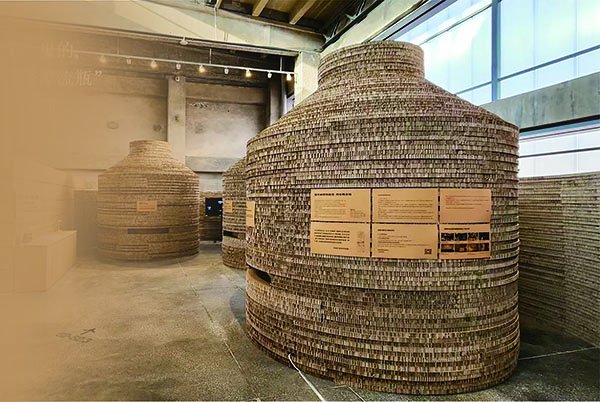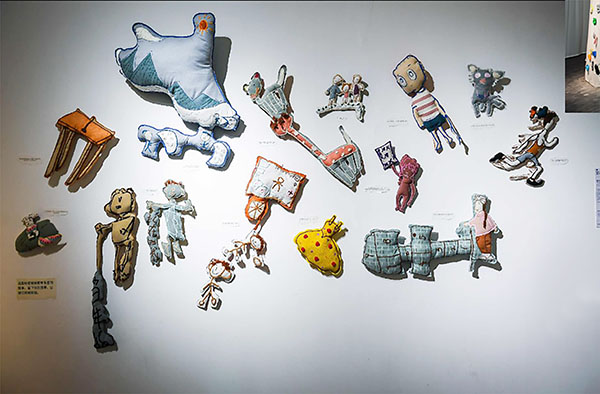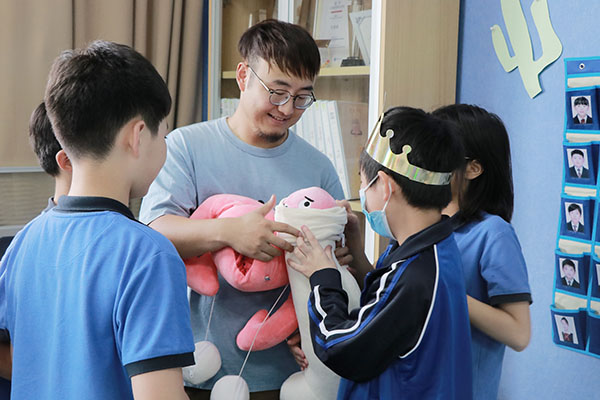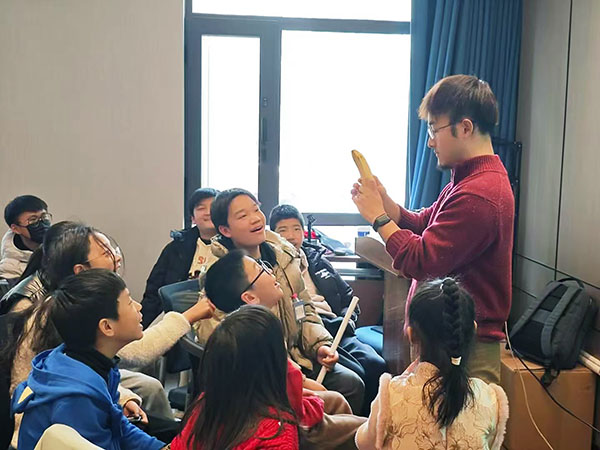
From grassroots art projects to academic research and social enterprise, a new generation of educators is reshaping how China approaches sexuality education.
In a small white building on Yulin East Road in Chengdu, Sichuan province, rows of archives stand quietly. Yellowed kraft paper folders are neatly arranged, each one containing a childhood secret — some speak of the pain of being mocked as a "sissy" by classmates, others express self-doubt shaped by gender stereotypes, and some recount the fear of sexual assault by people they once trusted.
This is the Childhood Secrets Archive, the first permanent public space in China to use art to explore and promote what was initially called sex education — now more widely understood as comprehensive sexuality education (CSE).
Since its founding in 2019, the archive has received over 5,000 anonymous submissions, with about 20 to 30 percent involving traumatic experiences such as school bullying and sexual abuse.
The project began as an art initiative by Hu Yanzi, who was then teaching at the Sichuan Fine Arts Institute. As she prepared for an exhibition, Hu collected 1,284 childhood secrets.
"As we analyzed the stories, we saw that much of the bullying in schools stems from cognitive biases caused by a lack of sexuality education," she said, adding that many children are bullied simply for not fitting into "standard" gender roles.
One submission haunted her. It came from a 20-year-old woman who had attempted suicide after suffering childhood sexual abuse. Social workers intervened and saved her life. "If she had had a chance to share her story and read others like hers, she might not have felt so alone," Hu said.
That experience pushed Hu to transform the short-term exhibition into a lasting initiative.
In 2022, the archive officially established its presence on Yulin East Road. Hu is committed to running it as a nonprofit public institution, with support from the local community, which provides a free venue and helps raise basic operational funds through donations.
The archive has launched diverse activities focused on children's sexuality education, including exhibitions, forums, workshops, and film screenings.

Promoting sexuality education faced significant challenges. "Many people still see talking about sex as taboo. Some think it doesn't concern them, while others are influenced by misunderstandings or even stigmatizing beliefs," said Hu.
To break down these barriers, Hu and her team have adopted a variety of creative methods. They turned the stories of sexual assault survivors into fabric dolls that visitors can touch, allowing them to physically sense these "scars". They used augmented reality to create a virtual space where viewers can enter the context of these stories and experience similar situations. They also built a temporary exhibition space using three large paper "bottles", inviting children to write down and share their secrets inside.
ALSO READ: Sex education gains steam in south China primary schools
"Stepping into each paper bottle feels warm, private, and soft — it gives children a sense of being safely held," Hu said.
The team also developed tailored sexuality education activities for different age groups. For children aged 3 to 6, they use picture books and theater to teach bodily autonomy. Children aged 7 to 10 explore themes of love and respect after watching Beauty and the Beast. Teenagers are encouraged to talk openly about the changes their bodies are going through.
But sexuality education doesn't stop at 18. As Hu explained, adults also need guidance — on developing healthy romantic relationships, recognizing gender stereotypes, and challenging discrimination.
"Sexuality education is something that lasts a lifetime," she said.
Ongoing education
Hu's approach resonates with that of Professor Liu Wenli of Beijing Normal University, a leading voice in advancing sexuality education in China.
"Sexuality education is not just about teaching the biology of sex," Liu explained. "It's about promoting health, well-being, and human dignity while cultivating important values such as respect, equality, inclusivity, diversity, and non-discrimination. It's a lifelong journey."
Since 2007, Liu and her team have brought sexuality education to schools for children from migrant families. She recalled two stories that stayed with her. One boy, after learning that nocturnal emissions are normal, told his parents that sexuality education was guiding him through adolescence. A girl from a divorced family, after hearing that divorce isn't the child's fault, gained a deeper understanding of the complexity of adult relationships and told her mother she loved her.

"Sexuality education helps children accept themselves and empathize with others. It's a driving force for social progress," Liu said.
She's encouraged by recent policy developments that are giving educators more confidence in their work.
For example, in 2020, the term "sex education" was officially included in China's Law on the Protection of Minors for the first time. In 2021, the State Council's Program for the Development of Chinese Children further emphasized that sexuality education should be integrated into the basic education system.
"In the past, we used vague terms like 'adolescent education' or 'life education' to sidestep the real issue. But for sexuality education to be truly effective, we must address the word 'sex' directly," Liu said. "Its inclusion in national policy documents encourages self-reflection, family-based learning, public discussion, and media attention."
Filling the gaps
Hu Jiawei, 31, from Quzhou in Zhejiang province, is the founder of Baohu Doudou, a social enterprise dedicated to children's sexuality education. The name, which means "protect little beans", is a metaphor for safeguarding young lives.
His interest in the field began in 2011 when he attended a sexuality education training session at university. He soon became active in student organizations focused on the topic and later launched his own nonprofit initiative to bring sexuality education programs to rural areas. However, he quickly realized that relying on newly trained volunteers each year was neither efficient nor sustainable.
So in 2015, he established Baohu Doudou as a social enterprise, aiming to fill gaps in sexuality education by adopting a lasting, market-driven approach.
The enterprise works across several key areas: managing sexuality education content on social media, creating scenario-based courses for parents, developing interactive online and offline lessons for children, and providing training for rural teachers and future sexuality educators.

To date, the enterprise has trained over 1,400 instructors — about 95 percent of them women.
The courses for children are designed to be fun and engaging, using board games to teach anatomical terms and help normalize what are often seen as "taboo" words. For parents, the courses address real-life situations they may face, such as how to respond when a child sees adults being intimate or discovers that their child is viewing pornography.
"Parents don't need to be experts," Hu Jiawei said. "But they do need to stop avoiding these issues."
READ MORE: Can education reduce sexual violence?
Still, the social enterprise sector for sexuality education in China is in its early stages. "Policies exist, but we lack sufficient class time, qualified instructors, and clear standards," he said.
He is particularly concerned about juvenile offenders. "Data from the Supreme People's Procuratorate shows that rape is the second most common crime committed by minors," he said. "Yet in juvenile detention centers, while legal education is provided, no one teaches them how to understand or manage their sexual impulses."
Liu shares similar concerns. In most primary and secondary schools, sexuality education remains limited to occasional lectures rather than being part of a structured curriculum.
To promote meaningful sexuality education in China, Liu calls for a collaborative effort: the government should provide stronger policy support, families should take responsibility for early education, schools should implement dedicated courses, academic researchers should offer theoretical guidance, and social organizations should help bridge the gaps.
Hu Jiawei often uses a vivid analogy to illustrate what a well-supported system could look like. He compares sexuality education to learning how to swim: "In every city, there are well-established systems for teaching kids to swim — pools, coaches, classes, even competitions — and parents see it as an essential life skill. I hope that one day, sexuality education will be just as accessible, normalized, and valued as swimming."


